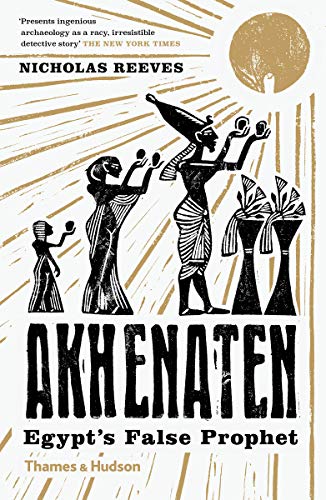You are here
| Size | Seeds | Peers | Completed |
|---|---|---|---|
| 50.53 MiB | 0 | 0 | 148 |

By using archaeological studies and theories, Reeves has written a captivating and educational interpretation of the life and times of Akhenaten, a legendary pharaoh of ancient Egypt. Akhenaten is probably best known for being the husband of Nefertiti and the father of Tutankhamun; he is also known for being the ruler who attempted to restructure the Egyptian multigod religion organization into a monotheistic form of worship. Reeves, author of The Complete Tutankhamun (1990) and former curator of the British Museum's Department of Egyptian Antiquities, argues some new and original theories behind Akhenaten's actions regarding political policy and religion. Sexuality, the creation of his new capital city, the arts, and political intrigue are all topics discussed as Reeves describes this era of long ago. Anyone interested in the enthralling history of the pharaohs of antiquity should read Akhenaten for further insights into this long forgotten and notorious ruler, and his ultimate failures.
Review
"Makes abundant use of both archaeological and textual evidence ... For those interested in ancient Egypt, this highly informative book is required reading."
About the Author
Nicholas Reeves founded the Amarna Royal Tombs Project, Valley of the Kings. His books include The Complete Tutankhamun and, with Richard H. Wilkinson, The Complete Valley of the Kings.
For all Egypt’s much-vaunted wealth, the construction of Akhetaten had placed an enormous strain on the financial resources of both the king and his officials – at a time when, through a combination of regal apathy and unsettled conditions abroad, income in the form of local taxation and foreign tribute was beginning to falter. Pharaoh’s latest move – the imposition of a single, official cult – provided a convenient excuse to lay kingly hands on the gods’ considerable financial resources. As a result, the strain was temporarily relieved, allowing the regime to limp along for a few years more.
But the temples – and that of Amun in particular, which had over the years insinuated itself into every aspect of the running of the country – were the very motor of the Egyptian economy. Now their doors were closed and corruption increasingly rife thanks to pharaoh’s careless delegation in those areas of statecraft – including taxation – which did not interest him. Disaster loomed.
- Log in to post comments
